Skift Take
Some generative AI tools for travel booking are getting more impressive, and some are not.

Travel Tech Briefing
Editor’s Note: Exclusive reporting on technology’s impact on the travel industry, delivered every Thursday. The briefing will guide executives as they decide if their companies should “build, buy, or partner” to stay ahead.
The world of generative AI in travel is starting to get more interesting.
Some companies had waited to introduce a chatbot and are now releasing tools that are more advanced than those we saw early this year. Others are going from simple ChatGPT plugin tools to more sophisticated chatbots.
The technology is still early and virtually none of the tools work fully as intended. But some of the latest releases show a clearer picture of how travel search and booking will look.
Mondee integrated its first generative AI tool into a recently updated platform for travel agents, and it’s one of the most comprehensive at the moment.
Trip.com, the Singapore-based online travel agency, this week released an updated yet limited version of a chatbot it originally released in February. While the first version was little more than a ChatGPT plugin, the newest version has photos of itinerary suggestions and links for booking.
Meanwhile, some of the large companies (like Expedia) have yet to update their first ChatGPT plugins, and others are putting out tools that would have been impressive several months ago.
Here is a closer look at a couple of tools released this month.
HomeToGo
HomeToGo, the Berlin-based metasearch site for short-term rentals, is among the first specialized companies to release an AI chatbot. AI Mode, as it’s called, was designed specifically to help users explore the millions of vacation rentals listings on the HomeToGo website. It is powered by OpenAI, the maker of ChatGPT.
It is an early move that’s part of the company’s effort to make search more relevant to individual users, with a goal of allowing them to more easily search for properties with specific attributes, such as budget-friendly options, according to HomeToGo CEO Patrick Andrae.
Now, HomeToGo is learning from customer interactions as it works to strengthen the technology and release more specialized search options and tools throughout the year.
“From our perspective, that’s the only way you should work on these products,” Andrae said.
The chatbot is located on the top of the “Explore” tab on the HomeToGo mobile app. The user can ask vague questions about destination suggestions or ask more specific questions about available properties. Either way, the chatbot asks follow-up questions to fill in missing information, such as the number of adults and children traveling, budget limits, bedroom and bathroom requirements, and dates of travel.
The chatbot responds with links to multiple options. For example, a request for a rental in Gracia, Barcelona, for the full month of October produced multiple suggestions that fit those requirements exactly.
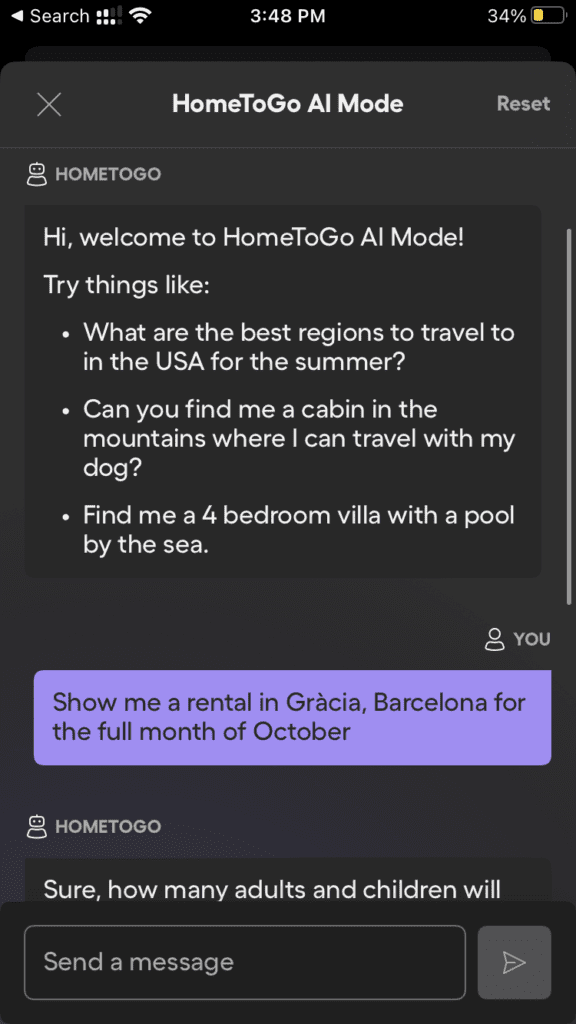
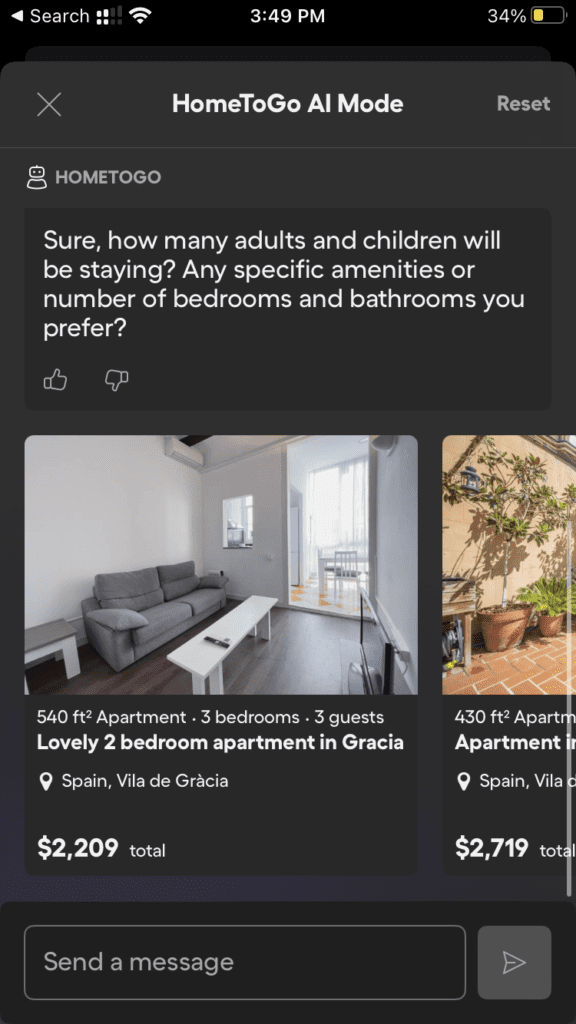
For now, the chatbot seems to do better with simpler requests, which the traveler can use as a starting point for further planning. The first suggestions to a prompt for a rental in Spain less than two kilometers from the sea, for example, was for an apartment near the inland capital Madrid.
The chatbot also hits a dead end after the user asks too many questions, and it doesn’t seem possible to backtrack or remove a requirement so it can continue with a broader search. Instead, the user needs to hit the “reset” button and start over, or the user can scroll up and see results shown previously.
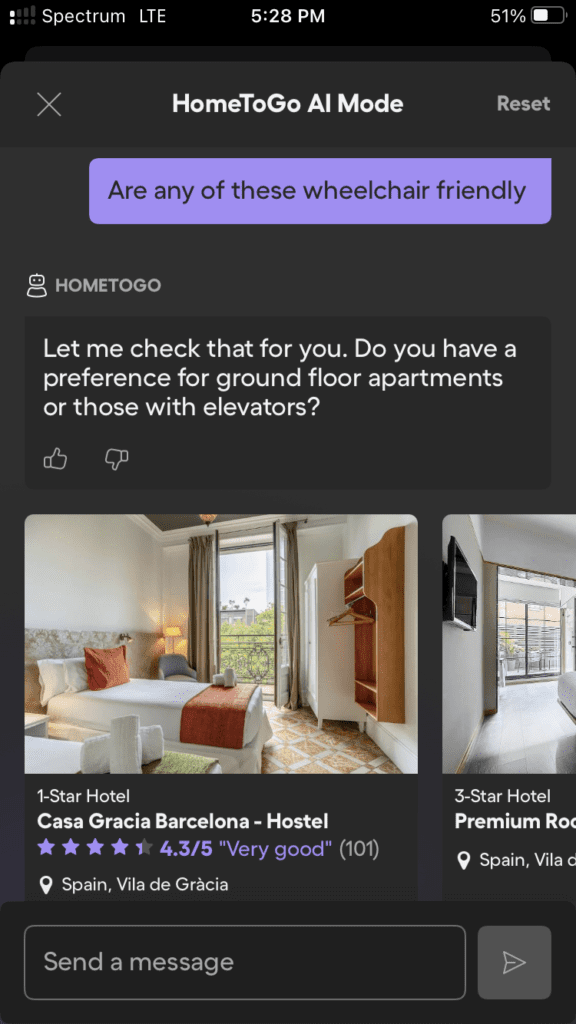
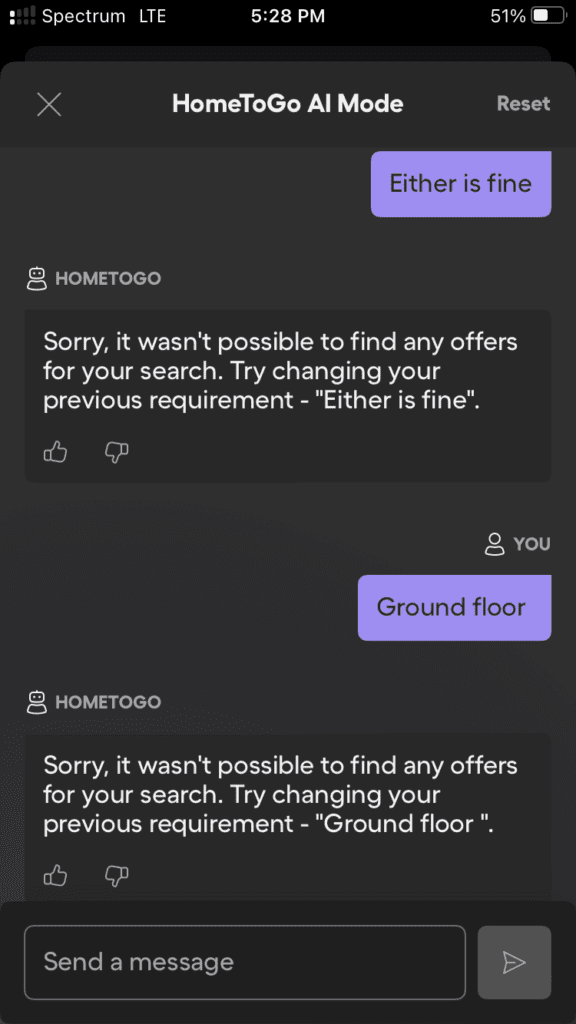
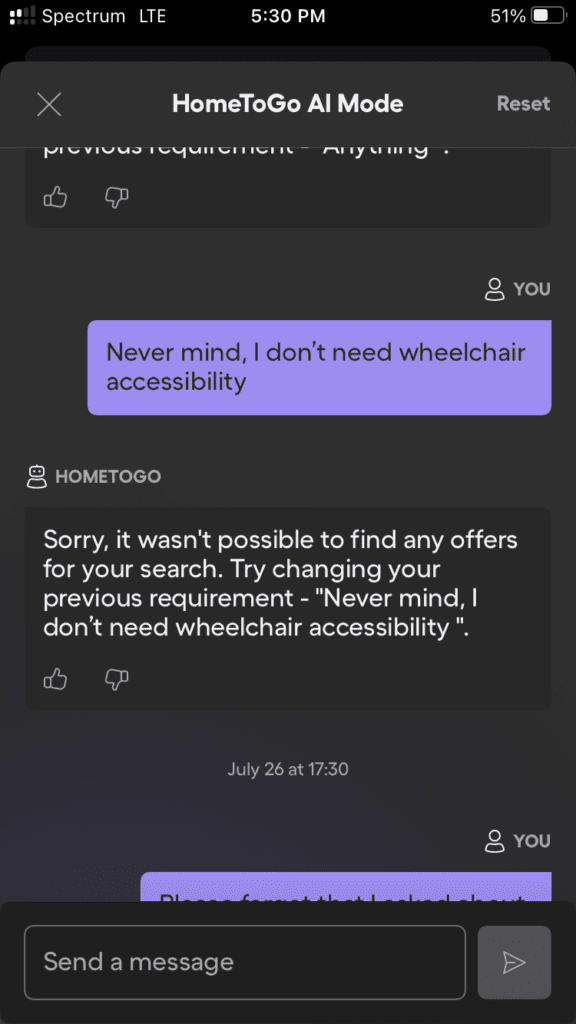
Tripadvisor
The Tripadvisor itinerary planner — not a chatbot — released last week isn’t wildly different from some of the tools we’ve already seen. And because it’s available on the web only, it’s not as convenient.
The planner starts by asking for a destination, then asks for dates, the number of travelers, and interests. The result is an itinerary with suggestions for several places to visit, coupled with a Google map that has pins at each of those locations. There’s also a link to the Tripadvisor webpage for each of the locations suggested.
In an itinerary for a weekend in New York City, the Metropolitan Museum of Art was one of only three suggestions out of 15 paired with links to specific tickets. It seems there is an opportunity to suggest more specific ticketed events for those who want a simpler planning experience. The Central Park suggestion, for example, came with no links even though there are more than 100 listings for Central Park on the Tripadvisor website.
Meanwhile, the young website Roam Around released a similar itinerary tool early this year that connects every suggestion to a ticketed tour on Viator (owned by Tripadvisor).
Skift AI Travel Newsletter
AI coverage across travel sectors that’s focused on separating trendy moves from good ideas – in your inbox every Friday.
Have a confidential tip for Skift? Get in touch
Tags: artificial intelligence, chatbots, generative ai, hometogo, innovation, online travel, Skift Pro Columns, travel booking, travel planning, Travel Tech Briefing, tripadvisor
Photo credit: Tripadvisor has more than 100 ticketed experiences in Central Park. Daria / Pixabay
